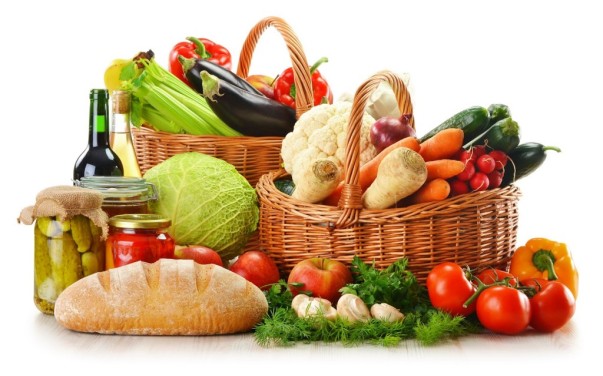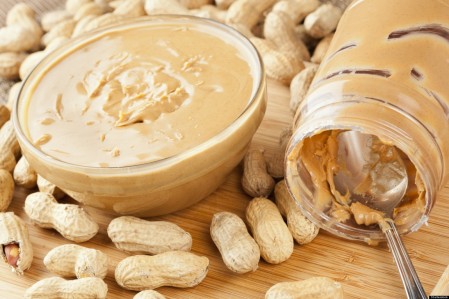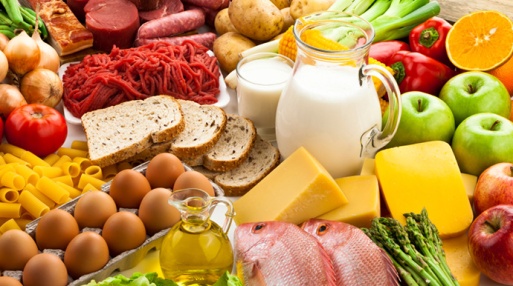
Intuitive eating is a concept that really resonates with me. In a society entrenched with diet culture, a huge percentage of people have lost the ability to trust their bodies, and instead opt for counting calories or macros, or eliminating food groups, or trying out various juice fasts, veggie cleanses, cabbage soup diets…the list of restrictive diets and ways to self starve is endless. The fact that we do not ignore other bodily signals: emptying our bladders or bowels; sneezing; coughing; itching; removing our fingers from a burning surface; blinking; but ignore our body’s signal for hunger and then call it a good thing is absurd. We have decided to stop trusting our biological body; a body built for survival, and instead listen to the multi-billion dollar diet and weight loss industry, our unhealthy thin-obsessed culture, and the media which panders to both (again, to make money). It is nonsensical. It is ridiculous. It is madness. And yet nearly all of us are guilty of listening and responding to it.
Intuitive eating is a nutrition philosophy based on the premise that becoming more attuned to the body’s natural hunger signals is a more effective way to attain a healthy weight, rather than keeping track of the amounts of energy and fats in foods.
This is why I love the idea of intuitive eating (although do remember when reading the above that a “healthy weight” is whatever your body needs to be at naturally, and has nothing to do with BMI). Reconnecting with your body; listening to it; honouring its cues and signals; respecting it and giving it the treatment it needs and deserves…this is exactly the right attitude to have, and exactly the right action to take. However, when it comes to recovering from the effects of dieting, or even more serious, an eating disorder, intuitive eating becomes a little trickier to throw yourself into.
Months or years of damages done to the body through restriction can cause huge issues with the way the body communicates with you, especially when it comes to hunger. Your hunger cues may have become suppressed, and therefore will be unreliable during the recovery process. When this is the case, it means that both hunger for the correct amount of energy and cravings for the right types of foods that the body needs won’t be felt by the person experiencing this, and so intuitive eating would be a disaster for them. It would mean that they would not get the energy that their body needs for daily energy requirements, and would not get the types of food that the body needs and nutrients that the body is lacking in. For these people, intuitive eating would not be something that they could jump into straight away, and would have to be a goal for later on in the recovery process. Those without reliable hunger cues would need to count calories to ensure that they are eating enough (I wrote about calorie counting in recovery here), and also keep an eye on the types of foods that they are eating to make sure that they are getting enough of each food group.
Those with reliable hunger cues will find that they are able to move to intuitive eating sooner, although I would always suggest counting at first whilst you establish if you have reliable hunger cues or not (and I have a video on when to know when you are able to eat intuitively here). Those with reliable hunger cues may find themselves ravenously hungry, or may be hungry for the amount that they need day to day, and then find themselves absolutely starving most of the time. This is normal and expected and in recovery is called “extreme hunger” (I have a video on this here). This is something those in recovery often experience, but not always. Those with reliable hunger cues find that they are hungry for the amount of energy that their body needs each day.

Some people in recovery go through periods of both reliable and unreliable hunger cues, and during this time it is best to keep counting calories and keeping an eye on what you are eating until you are receiving consistently reliable hunger cues.
For both those who have reliable and unreliable hunger cues it is important to make sure that you are eating all food groups, as they are all important for health. It is important to note for both those with reliable hunger cues and those with unreliable hunger cues that it is normal in recovery from restrictive eating disorders or dieting to crave foods that are high in energy, especially foods with a high fat, sugar, or carbohydrate content. This is because processed food can be one of the best things for recovery, especially during the initial stages. Foods high in energy help to fill the calorie deficit and repair the extensive damage done through starvation, as well as providing energy for the day. Foods high in fat help with regaining your period, aid bowel movements, and most importantly, the brain is made of at least 60% fat which requires eating fat in order to heal and maintain its health. Fat is also most easily processed by the body, which is quite essential to your damaged digestive system. Usually in recovery people crave “junk” food because this is just what their bodies need, and that is okay. If you are eating far more carbs than any other food group, that is okay. If you are eating far more sugary foods than any other food groups, that is okay. What is not okay is if you are only responding to these cravings and not having any other food group. Responding to the cravings is really important, but it is also important that you don’t go without an entire food group. Some people find that whilst their bodies are busy craving foods high in energy, it can end up not sending signals for fruit and vegetables. It is quite common for those with eating disorders or even dieting to have issues with filling up on fruit and veggies, and for these people, cutting down and thinking about it less is the goal, but for others, they can find that in recovery they can have reliable hunger cues for the energy that their body needs, but do not have the cravings for all the food types that it needs. The body, in this way, is being reliable in letting you know exactly what it needs in order to become energy-balanced (by craving foods high in energy), but has made this a priority and is not giving the right signals in order for the body to get all the nutrients that it needs. So if you realise that you are going days without fruit or veggies, make sure to incorporate some into your diet. Don’t become rigid or fixed upon a certain number, but just make sure you are having some throughout your day. The same applies to any other food group that you might find yourself not eating through lack of cravings.

Whilst many people crave “junk” food, you may also experience cravings for dairy, cereal, and meat/fish. You can have cravings for anything! You may also find that you have cravings for odd combinations of food, and that is perfectly normal too. Just respond to what your body is asking for.
If you are experiencing extreme hunger and/or having intense cravings for only one food group or particular type on food – don’t panic. Appetite settles down when the body is healthier to include cravings for a massive variety of foods: chocolate, milk, fruit, cereal, doughnuts, pizza, pasta, vegetables, fish, steak, cake….EVERYTHING. No foods should ever be off limits, and your body will start giving you more and more reliable hunger cues as your body gets healthier and healthier, until you are able to really connect with it and trust it. Throw out your magazines. Forget the media. Forget diet culture and societies unhealthy obsession with thinness. Trust your body and work with it. There is no wrong way to have a body (and please please please check out weight set point theory, and health at every size under my resources section).

For some people, intuitive eating can be something that they start doing fairly early on in recovery from an eating disorder or dieting, but for others, it can take time for their bodies to adjust and be able to communicate correctly. Whichever is the case, intuitive eating is a fantastic goal to work towards, but it is important to recognise that it can take time, patience, and perseverance. I would always suggest it be the goal, and would never want anyone to have to return to listening to diet culture – it’s what got a lot of people into a terrible place emotionally and physically in the first place (particularly those recovering from dieting as eating disorders are nearly always a lot more complex . However, recovery is certainly not helped along by diet culture). Listening to your natural, biological, earth-given body is the best thing to do for your mental and physical health when it comes to eating. Not concepts created by society. And always know that food is not just about nurture and nourishment, but about pleasure and enjoyment too. Do what makes you happy and healthy, both physically and mentally. You deserve it.

I really like the idea of intuitive eating in theory, and I believe in everything that you say. 100%.
But you know when you start applying it to yourself? It becomes a lot harder. I just have the constant voice saying: ‘your intuitive eating will make you fat. Your body naturally wants to be big, so you shouldn’t trust it.’ Despite believing everything about intuitive eating, I cannot relate it to myself? Does that make sense?
LikeLike
Oh definitely, and this us why it’s an end goal of how to eat rather than something you will be able to do straight away. It’s something to learn how to do, and this becomes easier the more you recover and the more you move away from listening to diet culture. It’s an almost impossible thing to do when your ED is raging and strong, but as it gets weaker and you have more control and less anxiety, it becomes easier to start reconnecting with your body. This is something that takes time and again, is a goal, rather than something that you can apply right away.
LikeLiked by 1 person
Makes perfect sense to me, I feel exactly the same about so many things in this process. it’s so annoying!
LikeLike
Oh I love this so much! I really liked what you said about making sure to have every food group. I am at a point right now where I basically only crave processed snack food (hello fast energy!). But I realize my body also needs nutrients and vitamins so I make sure I eat veggies and fruit as well, even if I don’t necessarily crave it.
It’s important to recognize you should ADD stuff like veggies in, not replace your real cravings with them. It can be a fine line in recovery to make sure you’re getting all your nutrients while still listening to what your body wants.
Thank you for this post girl! Love love love you as always ❤
LikeLike
Yes that is exactly right: adding to the cravings, not replacing them.x
LikeLike
Thanks so much for sharing your thoughts on this! I think intuitive eating is an excellent longterm goal, but I know trying to get there too soon was hard on me.
LikeLike
Pingback: Worthwhile Reads 5/22/16 - Loved and Worthy of Love